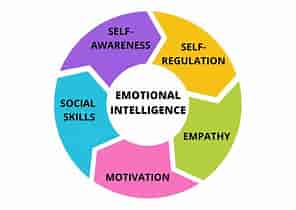Following are four essential new roles that are likely to emerge soon within corporate supply chains:
Data-driven planner. Supply planners are some of the most in-demand professionals at the moment, and they’ve long played a central role in supply chains. These talented people can plan, prioritize, communicate and manage relationships. They’re generalists who speak the languages of many other niches, but also have deep knowledge of modern, integrated supply chains. There is, however, a significant opportunity for an upgrade. Planners today may be experts in Excel, but many haven’t mastered newer, more modern technology.
Supply chains produce vast amounts of detailed data that filter through various channels. The modern supply planner might have to aggregate data from sales platforms, quality control inspections, factory management systems and even unstructured data sets such as customer email.
Traceability analyst. It’s a poorly kept secret that companies don’t have full visibility over their own supply chains. For years, the base-level standard was to know one level up and one level down, meaning each company only needed to know its suppliers and buyers. Most companies don’t know who their supplier’s suppliers are, which can be a considerable source of risk.
That attitude has contributed to the current global disruptions that most companies are experiencing. Those lacking full knowledge and visibility of their supply chain might be unaware of a looming shortage at the furthest ends. In the case of clothing retailers, food producers and even some industrial manufacturers, they might ultimately be relying on unethical sources of labor and materials.
Supply chain communicator. Executives, investors and even elected officials now recognize the criticality and fragility of global supply chains. This means they’ll likely want more comprehensive visualizations of the state of the supply chain, which in turn will drive demand for specialists in supply chain information.
These supply chain communicators must translate today’s global supply chain chaos and complexity into concise, meaningful messaging. They’ll need deep content knowledge, of course, but they’ll also have to look at each supply chain issue from the perspective of different audiences. What does the CEO need to know about the company’s flow of materials? How about marketing and sales? What about corporate sustainability and those responsible for environmental, social and governance (ESG) compliance?
At smaller companies, this role might be taken on by supply chain generalists. But at large and global enterprises, individual team members might dedicate significant amounts of their time to developing key performance indicators, dashboards, and other new tools to help manage, visualize and explain complex global supply chains.
Supply network innovator. Large and mid-sized companies are rethinking their supply chains at a fundamental level. Instead of relying on ultra-lean supply chains, it’s become more important to create redundancy in their supply network to mitigate supplier risk.
Some companies are creating regional hubs, allowing them to manufacture and sell goods within markets, which reduces their reliance on cross-border shipping. Others are simply developing backup suppliers and manufacturers across broader regions of the globe. A few are even integrating vertically, returning to the days when large businesses controlled their supply more tightly.
These global supply chain transformations will increase the demand for true innovators. Besides supply chain expertise, these changes will require creativity to imagine dramatic reconfigurations of a business without raising costs. New roles will require facilitators who can bring together different technologies, leaders and companies to understand better and improve the supply chains that connect and power our modern business world.





Leave a Reply